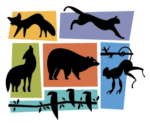Kinkajous
Kinkajous are in the same family (Procyonidae) as raccoons, coatis (aka coatimundis), and ringtails. This nocturnal tree-dweller is known for hanging upside down while feeding, using the tail and hind legs for support. They have a long, prehensile tail, fully reversible hind feet, and extreme spinal flexibility aid in climbing trees. Kinkajous are beneficial seed dispersers and pollinators as a result of their fruit-eating diet.
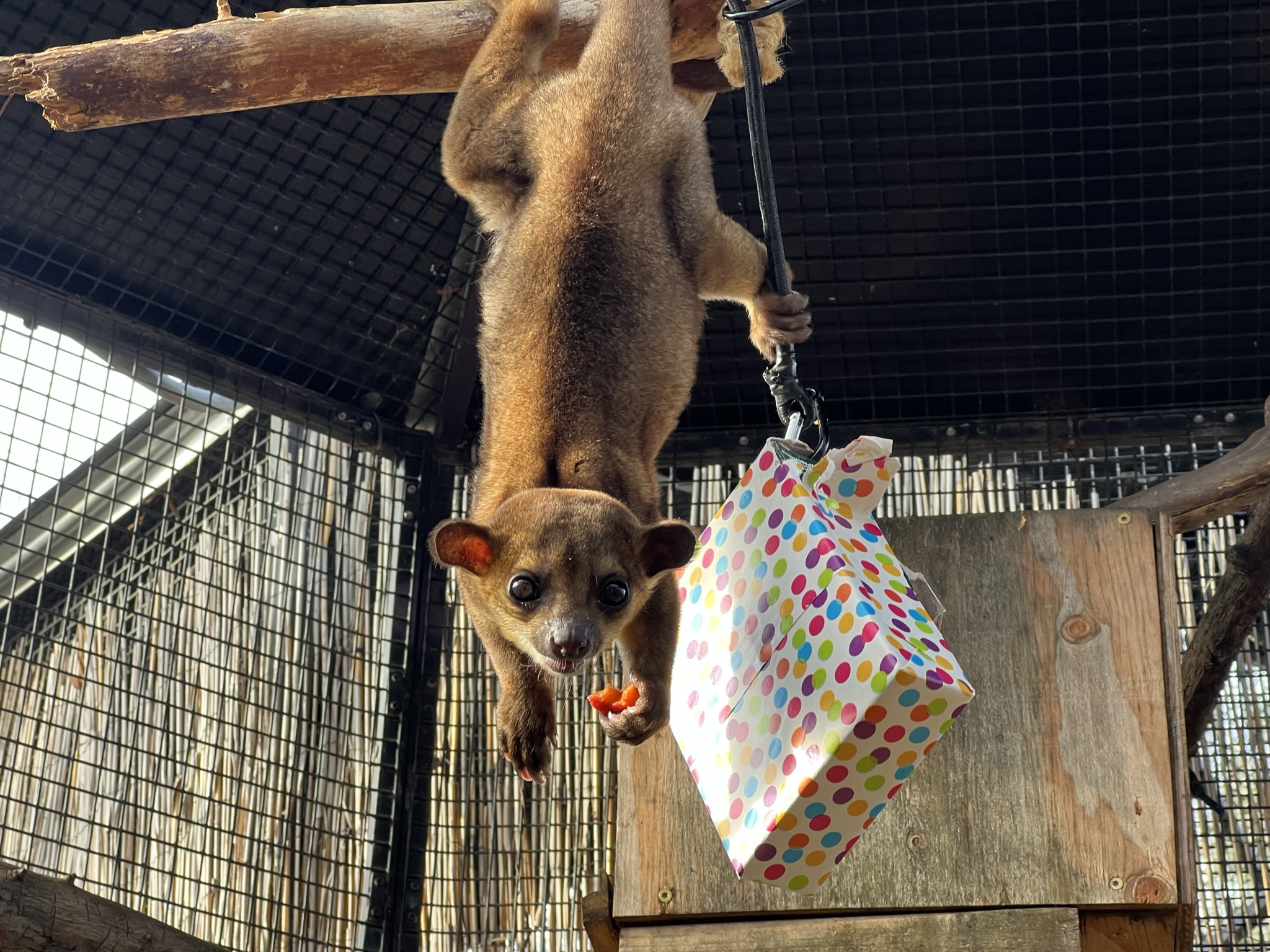

Raccoons
As omnivores, raccoons eat almost anything. They tend to sleep during the day and forage for food at night. Some studies show that there may be 20 times more raccoons in neighborhoods than in the wild. It’s the free food! Raccoons are tough. Many a would-be predator has limped away after an encounter with a raccoon’s sharp teeth and quick-tempered ways.
Ringtail
Despite other names being "Ringtail Cat" and "Miner's Cat", the Ringtail is a member of the Raccoon family, not the feline family. These small mammals are native to the area and wide spread across North America. As nocturnal species, they are very rarely seen outside of human care.
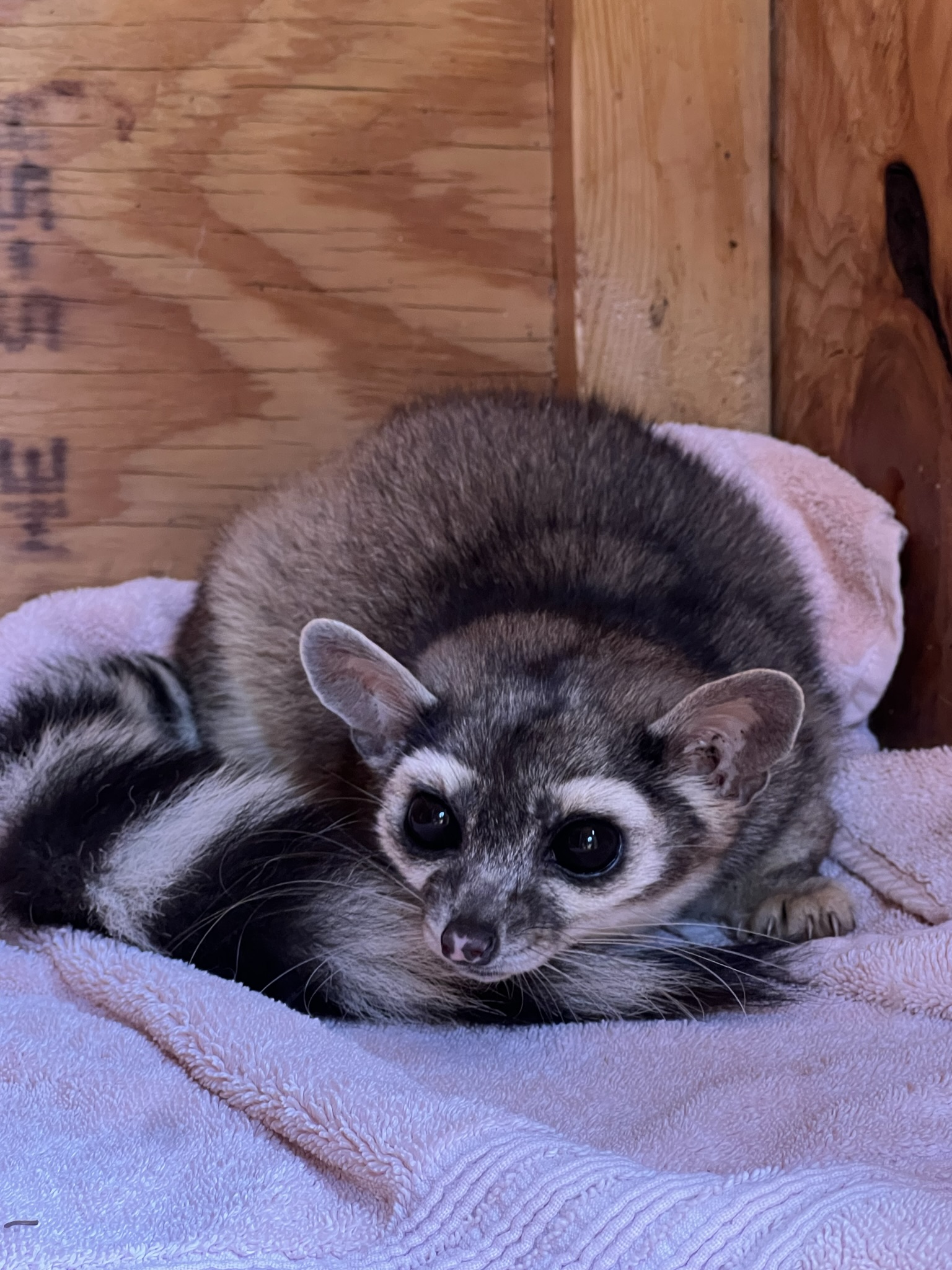
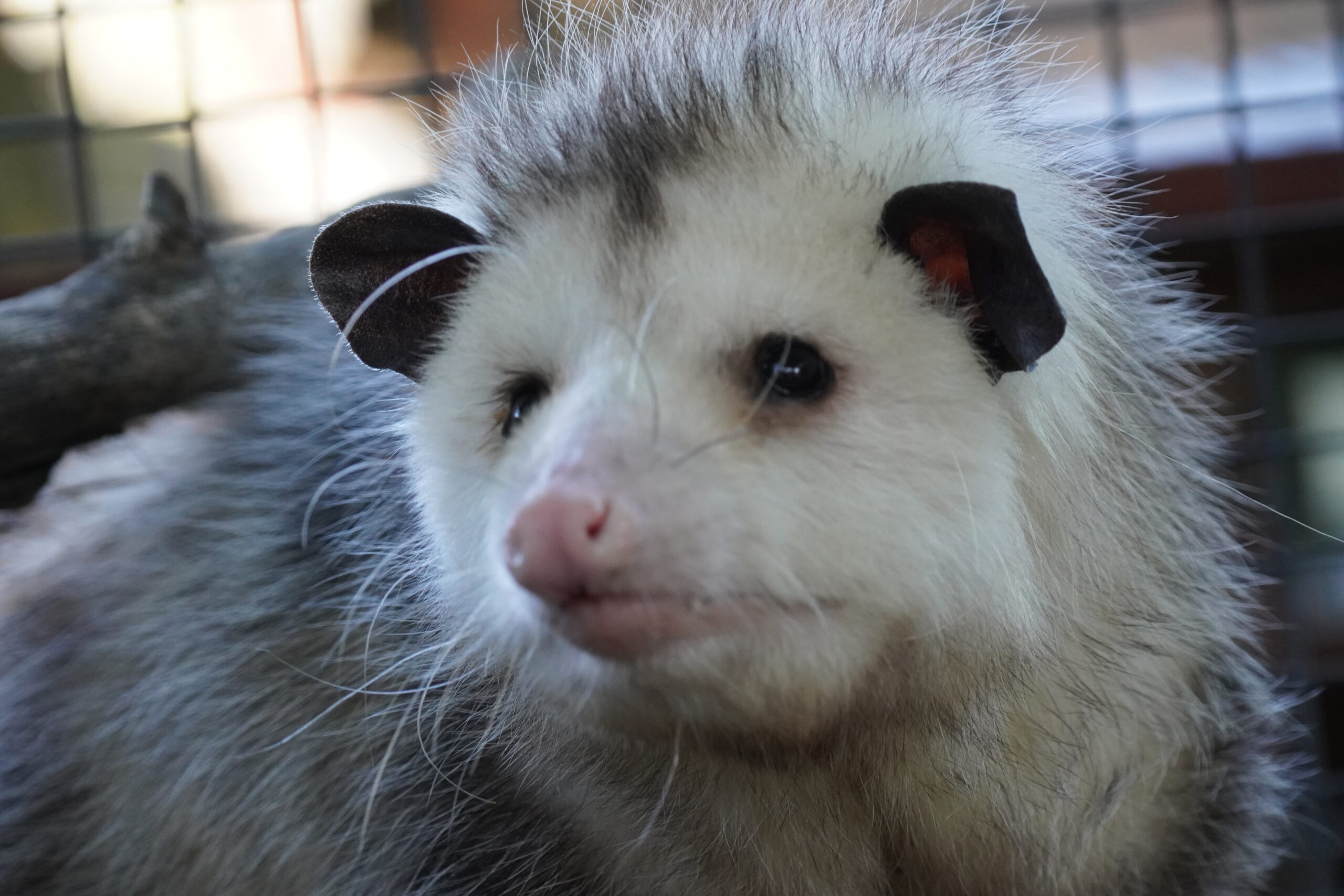
Virginia Opossums
The Virginia opossum is a marsupial, or “pouched” mammal, and is therefore related to other marsupials like the kangaroo and the koala. The Virginia opossum is the only marsupial found in North America (north of Mexico). Some of their diet is carrion and ticks, which helps lower the risk of disease spreading; a single opossum can consume 5,000 ticks per tick season. The chance of an opossum getting rabies is extremely rare due to a body temperature that is lower than that of other mammals, making it difficult for the virus to survive.
Four-Toed Hedgehog*
A hedgehog’s spikes are called spines or quills. The spines are made of keratin and are modified hairs. They are different from porcupine quills since they are not barbed at the end and do not normally detach. Hedgehogs have poor eyesight, keen hearing, and well-developed sense of smell. They are designated as a “detrimental species”. Releasing them in the wild would create both an unnatural predator and an unnatural food source, as well as a new vector for disease. Because of this, they are considered illegal pets in this state by the California Department of Fish & Wildlife.

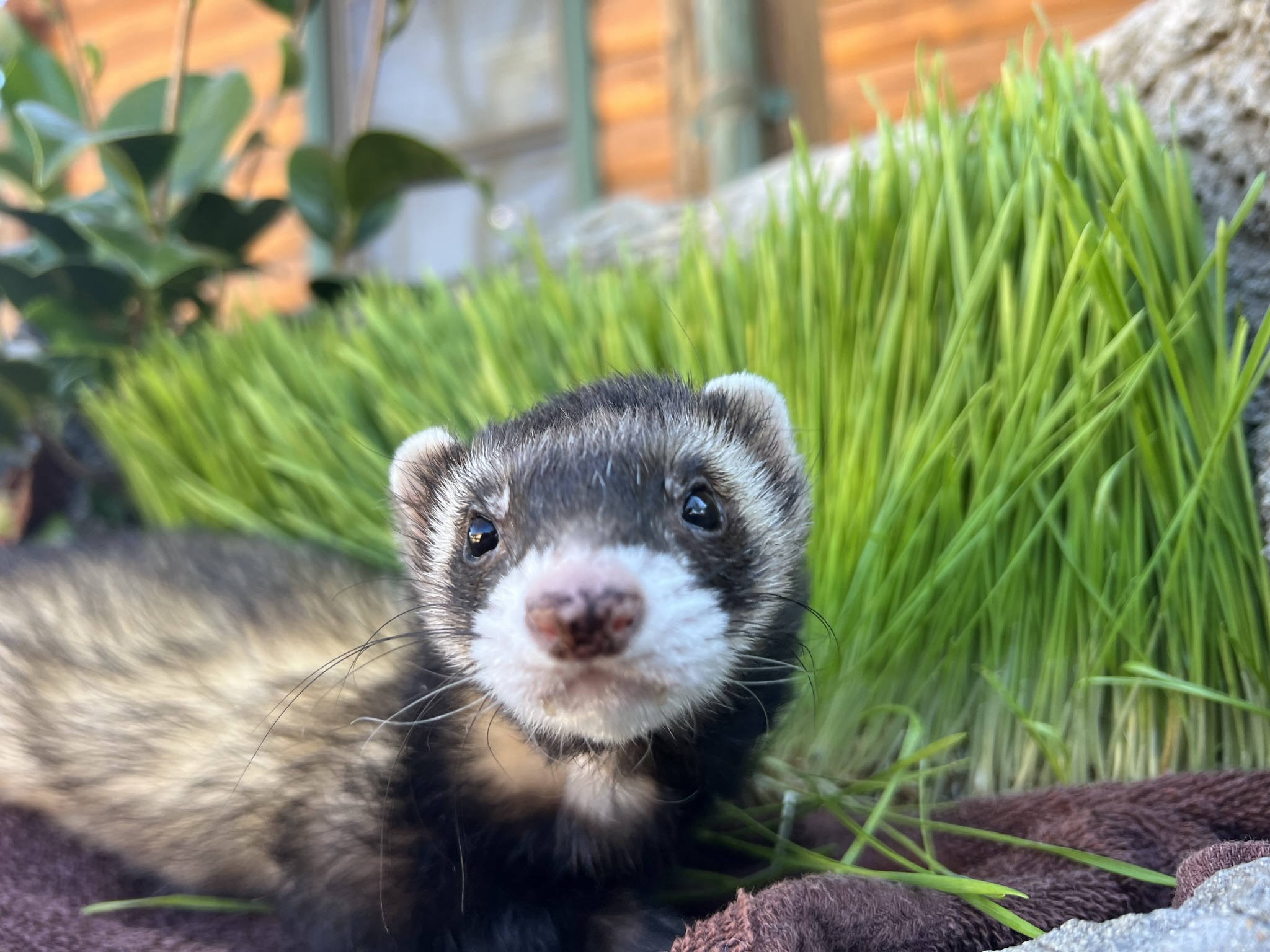
Ferrets*
Domesticated ferrets in the US are raised on breeding farms and are popular pets. Because of concerns that escaped ferrets could establish wild colonies, they are considered illegal pets in this state by the California Department of Fish & Wildlife. Other well-known members of the Mustelidae family (mustelids) are badgers, minks, weasels, polecats, and sea otters
